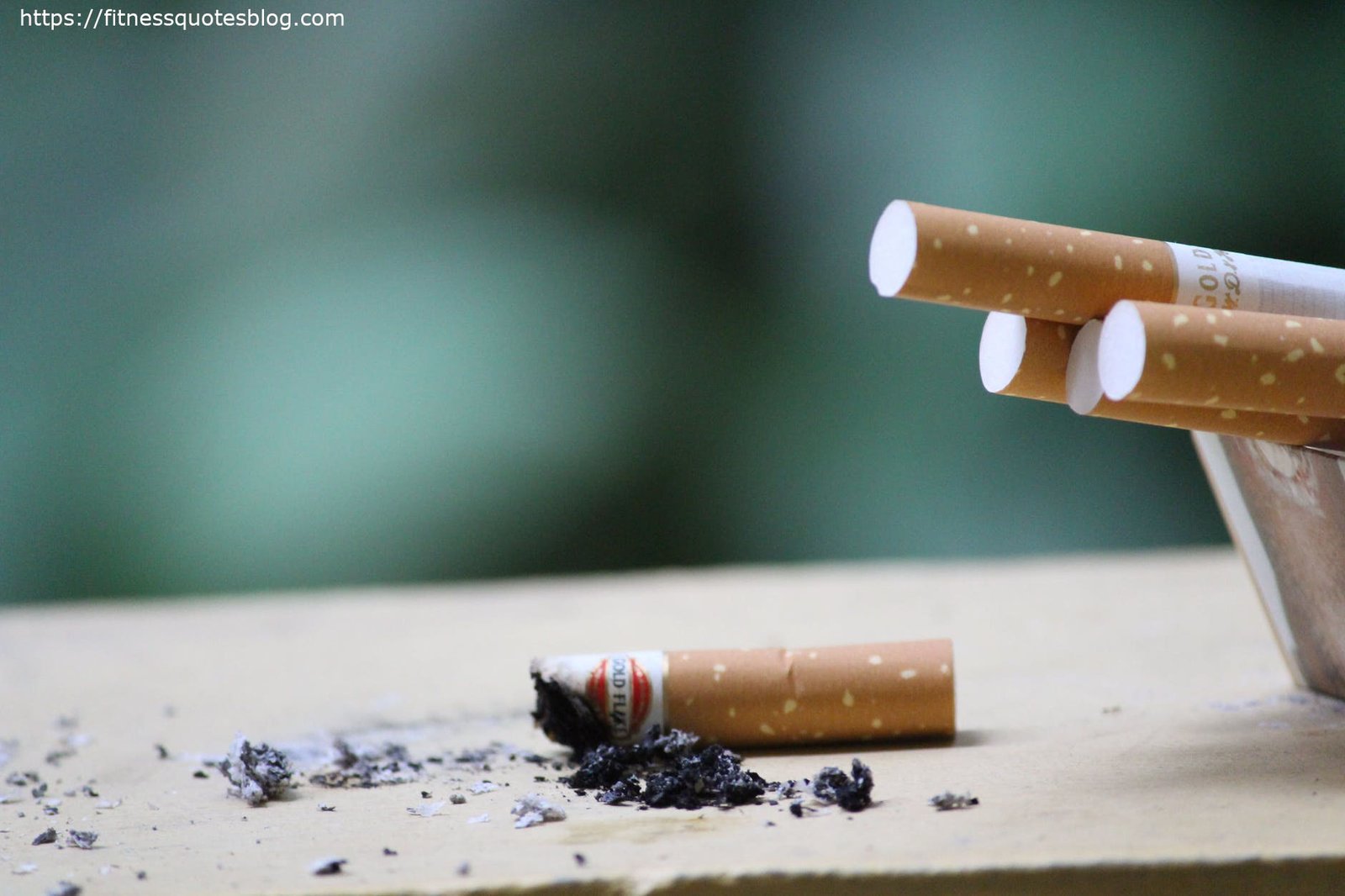When you apply for employment or are signing up for life insurance, you may be required to take a drug test with an attached nicotine check. The question then arises: how long does nicotine stay in your system?
What is nicotine?
The nicotine is a natural compound, but especially toxic. This element functions as an antagonist for the acetylcholine receptor, closely interconnected with the plant protection of herbivores. The active ingredient is found in all plants but is mainly concentrated in the leaves. In tobacco, the density varies from 0.3 to 5% of its dry weight.
In its pure state, it is liquid and transparent. While if exposed to the air, it darkens.
How long does it take for nicotine to circulate in your system?
Nicotine enters the body very fast. When smoked, it enters the bloodstream and arrives in the brain within 20 seconds. Nicotine is a stimulant, although it does make smokers feel relaxed.
The effects of nicotine depend on how it is taken. For example, biting or sniffing tobacco will release more nicotine than when smoked.
After taking it, people quickly experience a surge of adrenaline, which has a warming effect on the body, raising blood pressure and heart rate.
Dopamine levels in the brain also increase; this substance improves mood and enhances the feeling of pleasure.
How long does nicotine stay in your system?
Nicotine has a half-life of around two hours. The half-life is the amount of time it takes to eliminate half a dose of substance in the body.
When nicotine is smoked, it is absorbed by the body through the lungs; if instead it is consumed by chewing, nicotine can be absorbed in the gastrointestinal tract or the skin.
However, it is taken, nicotine is mainly metabolized in the liver, but also the lungs and kidneys, then it is primarily excreted through feces and urine but can also be found in hair and saliva.
When the body metabolizes nicotine, it is broken down by enzymes and releases cotinine. Tests usually look for cotinine rather than nicotine itself.
There are several test options for nicotine detection:
Urine test
The amount of cotinine in the urine varies based on the frequency and amount of nicotine you consume.
On average, nicotine in the urine leaves traces of up to 3 days, but usual smokers can have detectable levels for a period of between 15 and 20 days.
Laboratory results usually take 24 hours to 5 days to give the response.
Blood test
Blood tests can detect both nicotine and cotinine.
Nicotine can only be present in the blood for 48 hours, while cotinine leaves traces for up to 3 weeks.
After the blood collection in the laboratory, it takes between 2 and 10 days to have the results in hand.
Saliva test
Saliva tests can be used to detect nicotine for around 24 hours.
Cotinine, on the other hand, can usually be detected for a maximum of 7 days but can reach 14 days if it is a usual smoker.
Dry mouth or excessive salivation are two problems that can interfere with the correct collection of a sample.
For the test, a technician will swab the inside of the mouth and test the oral liquids for nicotine; the results can take from 24 to 72 hours.
Traces in the Hair
As with other substances, the hair follicle test can detect the presence of nicotine for a very long period. However, this method is much less common because it tends to be more costly.
The test requires the removal of a small amount of hair and can detect traces of nicotine for up to 90 days. Results usually take one to five days.
False Positive Tests
It is said to be falsely positive when a test gives an abnormal result. In this case, when it marks the presence of nicotine in a non-smoker.
A compound called Thiocyanate, present in some medications and foods, including broccoli, garlic, radishes, almonds, and cabbage can cause a false positive result in the blood test.
Vegetarians may have high levels of this substance in their blood due to their diet. This can lead to a false test result.
Exposure to secondhand smoke is not sufficient to trigger a false positive result except in rare cases as the exposure levels are high.
Causes
The human body, brain, in particular, is particularly sympathetic to nicotine and, if the intake of the latter is constant, it tends to make its presence something stable and necessary.
According to the researchers, it is precisely this particular habit in the presence of nicotine by the brain that causes withdrawal symptoms when an individual stops smoking; in fact, it seems that, with the abolition of smoking, the brain cells feel the absence of nicotine and react as if they lack something essential and indispensable.
As we will see later, nicotine removal syndrome has a particular duration. This duration is the period that the brain, first of all, and the human body, secondly, need to get used to the lack of nicotine.
Symptoms and complications
The duration of symptoms is approximately two to three weeks. The climax of the desire to re-light the cigarette occurs after a single day of abstinence and lasts about two days. Then there remains the urge to smoke, which tends to decrease after a few days.
Possible symptoms of nicotine withdrawal are:
- Unrestrained desire to smoke;
- Intestinal nausea and cramps ;
- Headache;
- Irritation;
- Anger;
- Stress ;
- Depression;
- Constipation ;
- Disturbed night sleep and sleepiness during the day;
- Difficulty concentrating ;
- Increased appetite with a consequent increase in body weight ;
- Disappointment;
- Tingling in the hands and feet.
Onset and evolution of symptoms
The first symptoms of nicotine retraction appear just 2-3 hours after the last cigarette, cigar, or puff of pipe.
After three days – that is, the period essential for the body to eliminate all traces of nicotine – the most acute phase of the withdrawal syndrome begins. It is from this moment that the ex-smoker suffers more intensely from the unstoppable desire to smoke, from irritability, from difficulty concentrating, etc.
To resolve the symptoms or, at the very least, to appreciate an improvement (i.e. a decrease in intensity), 2-3 weeks should pass after the last nicotine intake.
How to notice that nicotine withdrawal is improving?
The ex-smoker can imagine when the acute phase of nicotine withdrawal is coming to an end with some definite signs, including mainly:
- Absent or reduced need to smoke (compared to a previous time when this need was overwhelmingly present);
- Greater peace of mind (compared to a previous phase in which there were irritability and anger);
- Less anxiety.
Some simple tricks to check the symptoms
For an ex-smoker who wants to suffer less from nicotine recession, experts advise:
- Avoid visiting places where it is easy to meet people who smoke;
- Avoid keeping company with people who smoke. In the acute phase of abstinence, this is very important;
- Avoid the destruction of alcoholic substances and temporarily reduce that of coffee and tea;
- Practice more physical activity. Exercise has the power to reduce the stress of everyday life, which, very often, is one of the reasons why you smoke;
- Engage in pastimes, such as reading a book, new hobbies, etc., to occupy the free moments of the day and feel the lack of nicotine less;
- Get chewing gum and use it whenever your desire to smoke increases considerably;
- Ask for advice from those who, among friends, acquaintances, and relatives, have happily passed nicotine withdrawal. The comparison, in these circumstances, can provide new ideas on how to best deal with the symptoms;
- Be patient, because the desire to smoke is not fixed, but alternates acute phases, in which it seems uncontrollable, to decidedly more tenuous stages, in which it is barely perceptible.
Why is it worth suffering from nicotine withdrawal?
The answer to this question is straightforward: the symptoms of nicotine withdrawal are zero when compared to the severe diseases that smoking can cause ( lung cancer, throat cancer, pulmonary fibrosis, etc.).
How to get rid of nicotine from the system?
The first step to extracting nicotine from your body is obviously to stop using all the products that contain it completely.
The longer you continue to use tobacco products, the longer the nicotine will remain in your body.
Once you stop taking nicotine, there are a few steps you can take to speed up this process.
- Stay Hydrated: Drinking much water will help remove nicotine and its metabolites from the body through urine.
- Eat Healthily: Adhering to a nutritious diet that includes many foods containing antioxidants can speed up the rate of nicotine extraction from the system.
- Exercise: regular physical activity can boost your metabolism, therefore the speed with which nicotine is expelled from your body.
Foods that help quickly get rid of nicotine:
Water
Nicotine dehydrates the body, so it is good to drink water to rehydrate. Having a good supply of water helps the body to sweat and expel nicotine.

Nettle
Nettle is rich in iron and is a useful disinfectant to combat genito-urinary infections.

Vegetables
Eating celery, together with vegetables such as courgettes, aubergines, beans, and cucumbers, affect the taste of the cigarette and can, therefore, decrease nicotine addiction.

Pine Needle Tea
This light lemon-flavored tea is traditionally used to disinfect the mouth and throat, is rich in vitamins C, beta-carotene, and can also be an excellent aid for lung health.
It is contraindicated in pregnancy.
Oranges
They contain high levels of vitamin C, which has strong antioxidant power, and it is known that in smokers, the amount of free radicals is very high.

Eating oranges increases the metabolism, to eliminate nicotine faster, and also decreases stress.
Kiwi
The kiwi helps you eliminate nicotine from your body and replenish the vitamins A, C, and E.

Carrot juice
Nicotine damage created on the skin is often visible in the form of spots and wrinkles.

The carrot juice has vitamins A, B, C, K, which help expel nicotine from the body and are essential for healthy skin.
Broccoli
The broccoli contains high levels of vitamin B5 and C and a substance that shields the lungs from toxins damage related to nicotine.

One last tip
Do you want to quit smoking? The best time to do this is every month in the new moon period. The body and mind are more prone to let go of something old and engage in something new.
Final Words
If you’re involved approximately whether or not nicotine will show up on a drug check or no longer, it is probably the best time to get critical about quitting. Even as there are not any clean and painless methods to kick the nicotine habit, there are masses of assets that will help you expand a strong smoking cessation plan. Additionally, building a nicotine-free life ought to make you a greater productive employee.
Must Read:
- Guar Gum: Health Benefits And Side Effects
- Ginger water – an effective way to lose weight
- Cucumber Diet And Weight Loss Challenge



